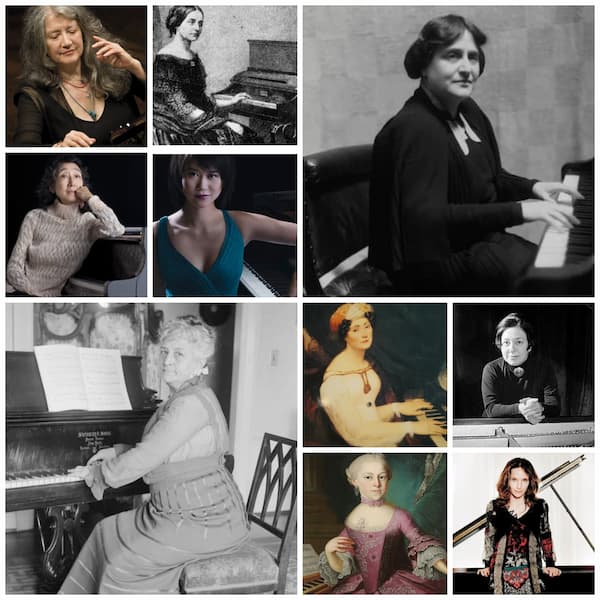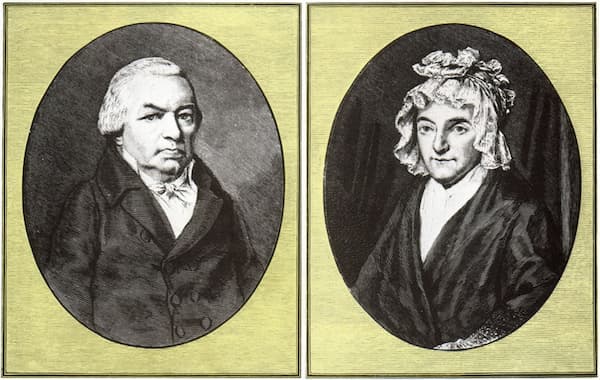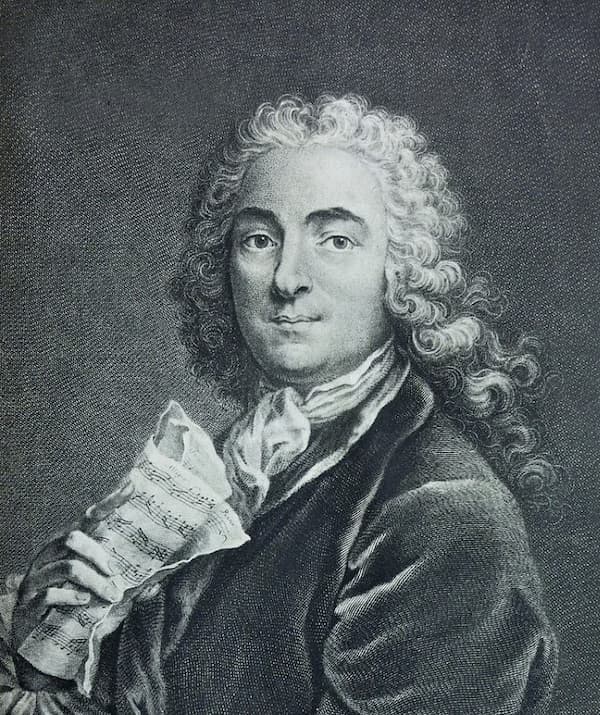To commemorate the 150th anniversary of Sergei Rachmaninoff’s birth in 2023, Mikhaïl Pletnev and the Orchestre Philharmonique de Radio France under Dima Slobodeniouk embarked on an ambitious musical adventure of performing the composer’s four piano concertos over two consecutive evenings.
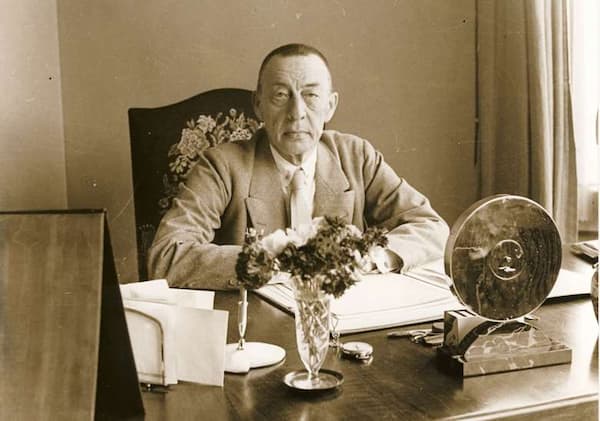
Sergei Rachmaninoff
While the first evening featured the youthful Concerto No. 1 and the popular Concerto No. 2 with encores by Chopin and Moszkowski (Read “Part 1” of the series), the second instalment tackled the more complex and introspective Concertos No. 3 and No. 4. The encore choice of a Rachmaninoff Prélude reinforced the thematic focus on the composer, offering a satisfying and cohesive conclusion.
Sergei Rachmaninoff: Piano Concertos No. 3 and No. 4
Concerto No. 3
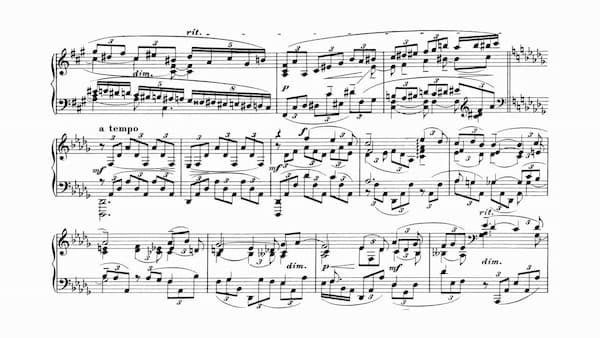
Rachmaninoff’s Piano Concerto No. 3
The Piano Concerto No. 3 in D minor has the reputation of being one of the most technically challenging piano concertos in the repertoire. Premiered in New York City in 1909, critics considered the work too long and suggested that “it lacked rhythmic and harmonic contrast.”
While Rachmaninoff’s pianism was widely celebrated, the concerto was said “to contain extra baggage in the first and last movements.”
In his Third Concerto, Rachmaninoff does illustrate to perfection his considerable gift for writing long and beautifully phrased melodies. In an effort to make the work more popular, Rachmaninoff authorised several cuts in the score, particularly to the second and third movements. However, the “Rach 3,” as it eventually became colloquially known, really only started to gain serious traction once Vladimir Horowitz included it in his repertoire.
Concerto No. 4
On 18 March 1927, the Philadelphia Orchestra under Leopold Stokowski featured Sergei Rachmaninoff as the soloist in the premiere of the composer’s Fourth Piano Concerto. Audiences and critics were eager to witness Rachmaninoff’s latest creation, however, they all left suitably unimpressed. A critic for the New York Evening Telegram called the piece “long-winded, tiresome, unimportant, in places tawdry.” Some voices went further and dismissed the work as “essentially nineteenth century.”
Rachmaninoff was predictably shattered, but he was painfully aware that his music was out of step with the times. “I feel like a ghost wandering a world grown alien,” he had remarked in 1926. “I cannot cast out the old way of writing, and I cannot acquire the new. The new kind of music seems to come, not from the heart, but from the head. Composers think rather than feel.” Over the next 15 years, the composer embarked on a number of cuts and revisions, and the 4th Concerto would become the last original composition on which he worked.
The Performance
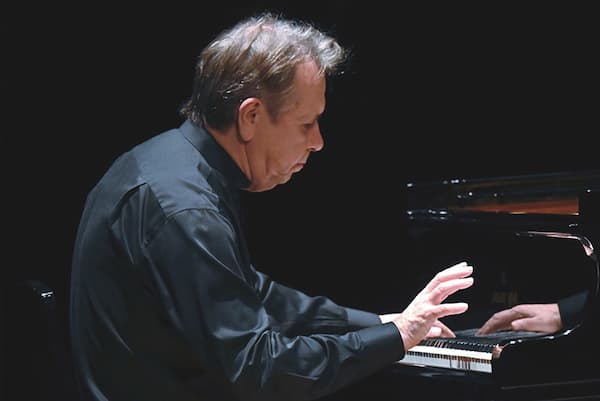
Mikhaïl Pletnev
Pletnev’s interpretation of Rachmaninoff’s Third Concerto was marked by his refusal to indulge in exaggerated drama, offering a restrained yet emotionally profound reading instead. Using subtle shifts in dynamics and chord colouring, Pletnev created a performance described as a “summit of emotion.” The Finale was a resounding triumph, as Pletnev’s relaxed yet precise phrasing was complemented by cohesive and expressive strings.
Pletnev’s rendition of the Fourth Concerto was described as the “culmination of the aesthetic explored across all four concertos.” He approached the work with a stripped-down intensity, exposing its inner workings through slow and deliberate pacing. Pletnev’s sound oscillated between emerging from the depths of the piano and briefly soaring above the orchestra, blending seamlessly with the strings. To many, he was able to transform the concerto into a profound exploration of Rachmaninoff’s inner world.
Encore
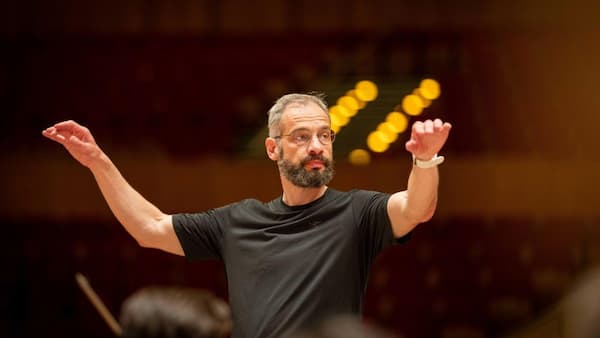
Dima Slobodeniouk
To conclude the evening, and essentially the entire cycle of Rachmaninoff’s piano concertos, Pletnev performed one of the composer’s most lyrical and introspective solo piano works, the Prélude in D Major, Op. 23, No. 4. Pletnev’s playing was marked by an intimate, almost improvisational quality, with a sophisticated yet folk-like temperament that highlighted the work’s delicate textures. The performance was a masterclass in subtlety, avoiding pathos and instead offering a contemplative, poetic close to the evening and the entire cycle.
Mikhaïl Pletnev, alongside the Orchestre Philharmonique de Radio France under Dima Slobodeniouk, delivered a mesmerising two-night performance of Rachmaninoff’s complete piano concertos. Captivating audiences with his poetic and restrained virtuosity, Pletnev used a Shigeru Kawai to emphasise his exquisite touch.
Audiences and critics praised Pletnev’s introspective approach, as he abandoned exaggerated drama for nuanced lyricism. Meanwhile, the Orchestre Philharmonique de Radio France under Dima Slobodeniouk provided disciplined and expressive support that elevated the emotional depth of these romantic masterpieces.
Sergei Rachmaninoff: Piano Concertos No. 3 and No. 4
For more of the best in classical music, sign up for our E-Newsletter


